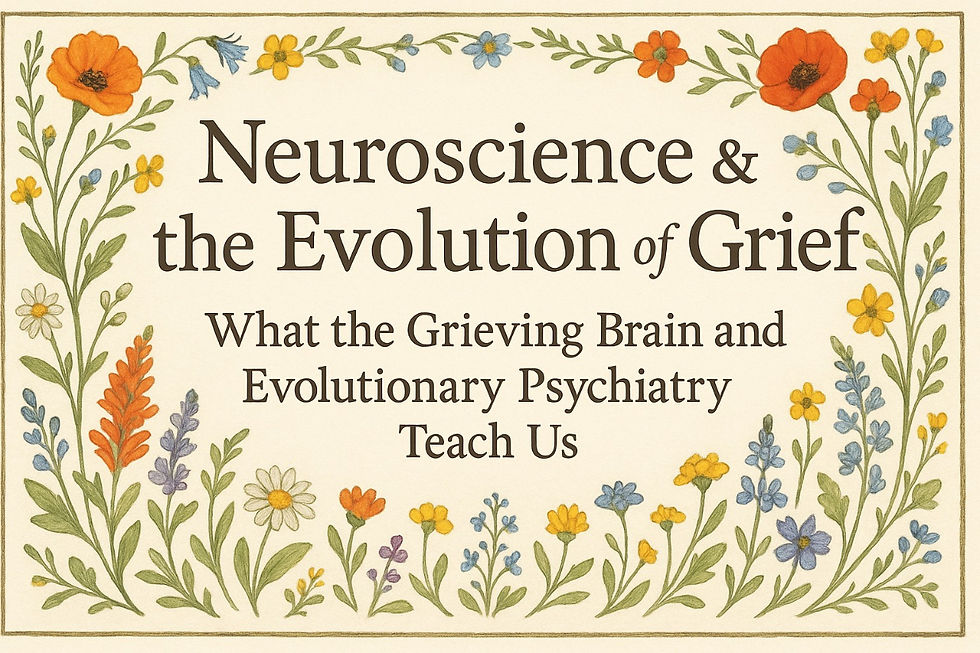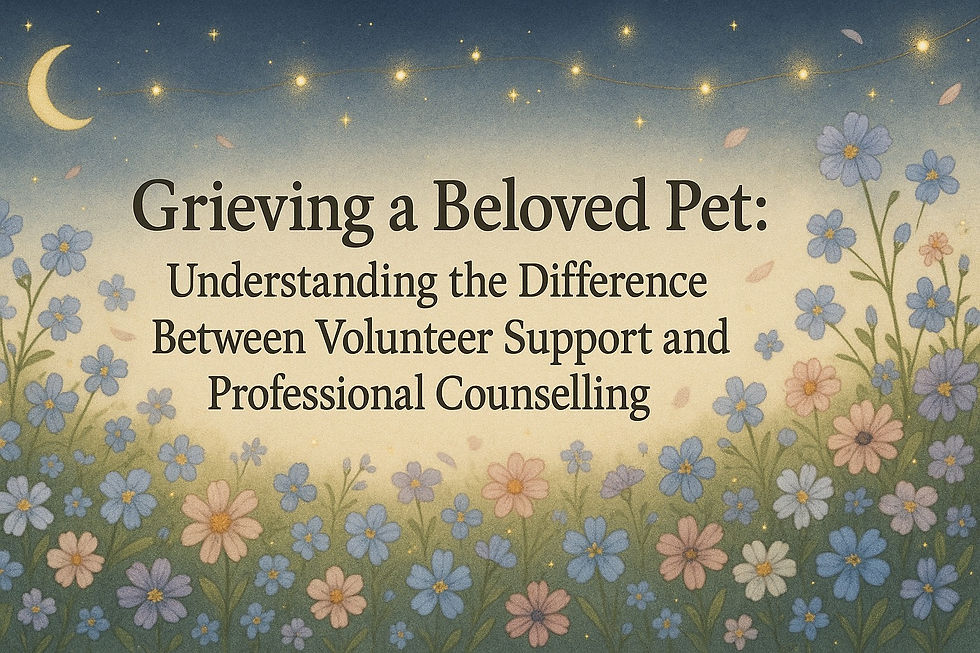Black Dog Pet Bereavement in “Your Dog” magazine: Saying goodbye to a cherished pet can leave a wound as deep as losing a human family member.
- Katie Risdon

- Jun 13, 2025
- 2 min read

In “My Pet Died – How Can I Cope?”, I explore the complex journey of
grief that follows a pet’s passing—from acute sorrow and guilt to the
enduring ache of prolonged grief.
To provide both compassion and clarity, I draw on evidence-based
strategies from the Center for Prolonged Grief—specifically Prolonged
Grief Treatment (PGT). This structured, short-term therapy (around 16
sessions) is guided by six key healing milestones and has been shown
to be twice as effective as traditional depression therapies in
reducing grief intensity and restoring everyday functioning.
Here’s how my approach integrates heartfelt support with proven healing
techniques:
1. Psychoeducation and normalising grief
I encourage acknowledging your pain as the foundation of healing.
PGT complements this by teaching what grief typically looks like
and why it’s a natural, shared experience.
2. Cognitive Behavioural interventions
Together, we’ll gently challenge painful thoughts like I failed them
and uncover kinder, healthier ways of thinking—an approach
reinforced by grief-focused CBT evidence.
3. Exposure-based techniques
We’ll gently revisit difficult memories—perhaps your pet’s final
days—to process emotions rather than avoid them. When
combined with CBT, this method offers deeper, more lasting relief.
4. Experiential exercises & mindfulness rituals
From journaling and guided imagery to creating meaningful rituals,
these practices help you sit with grief in small, manageable
steps—so it doesn’t overwhelm you.
By weaving together empathy and proven therapeutic techniques, this
article offers more than comfort—it gives readers an understanding of
the clear, compassionate toolkit which professional support can offer. My
hope is that those grieving feel seen, supported, and empowered,
trusting that one day the love we shared with our pets will shine brighter
than the pain of their loss.
Link to full article below:

.png)





Comments